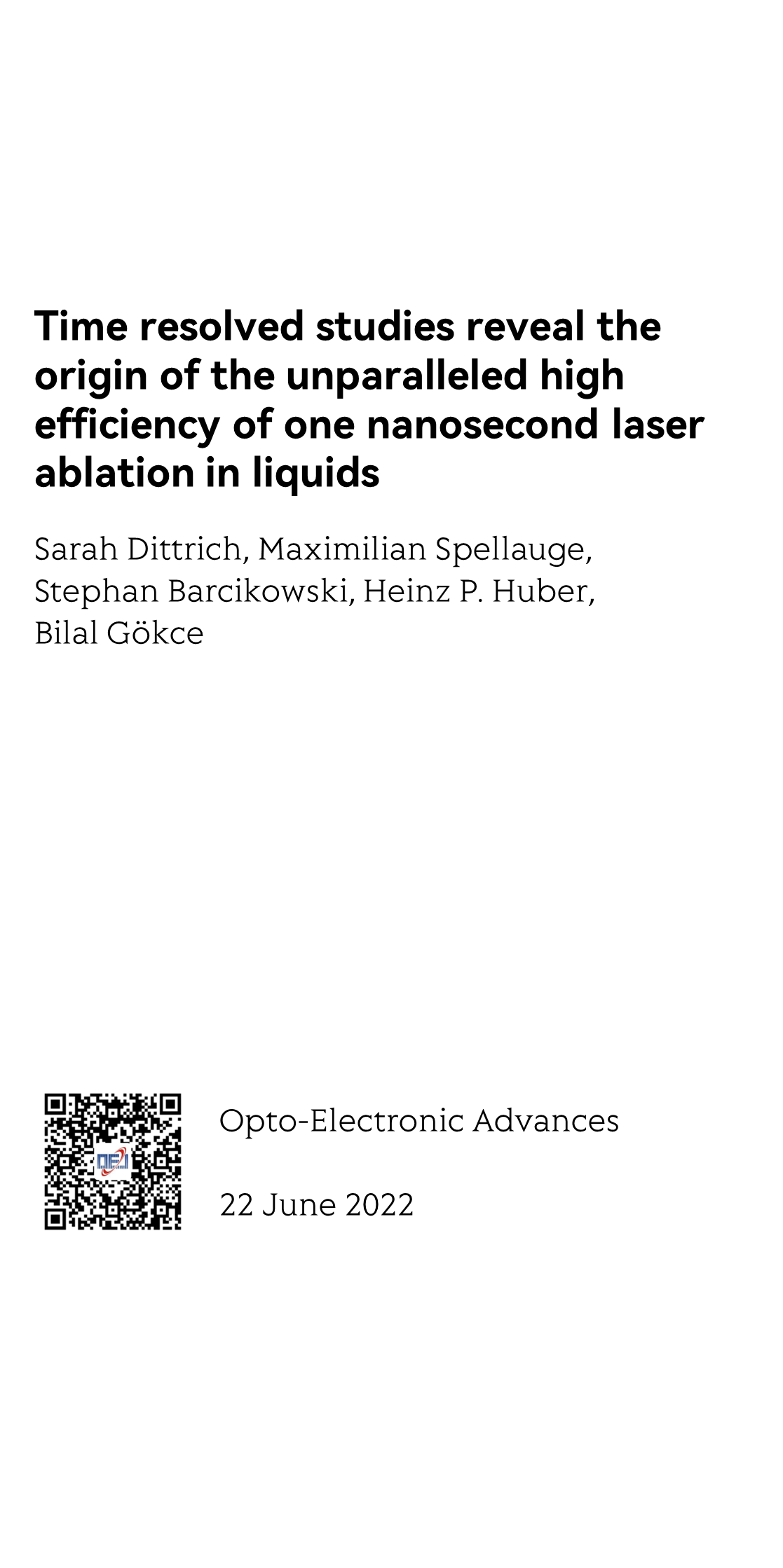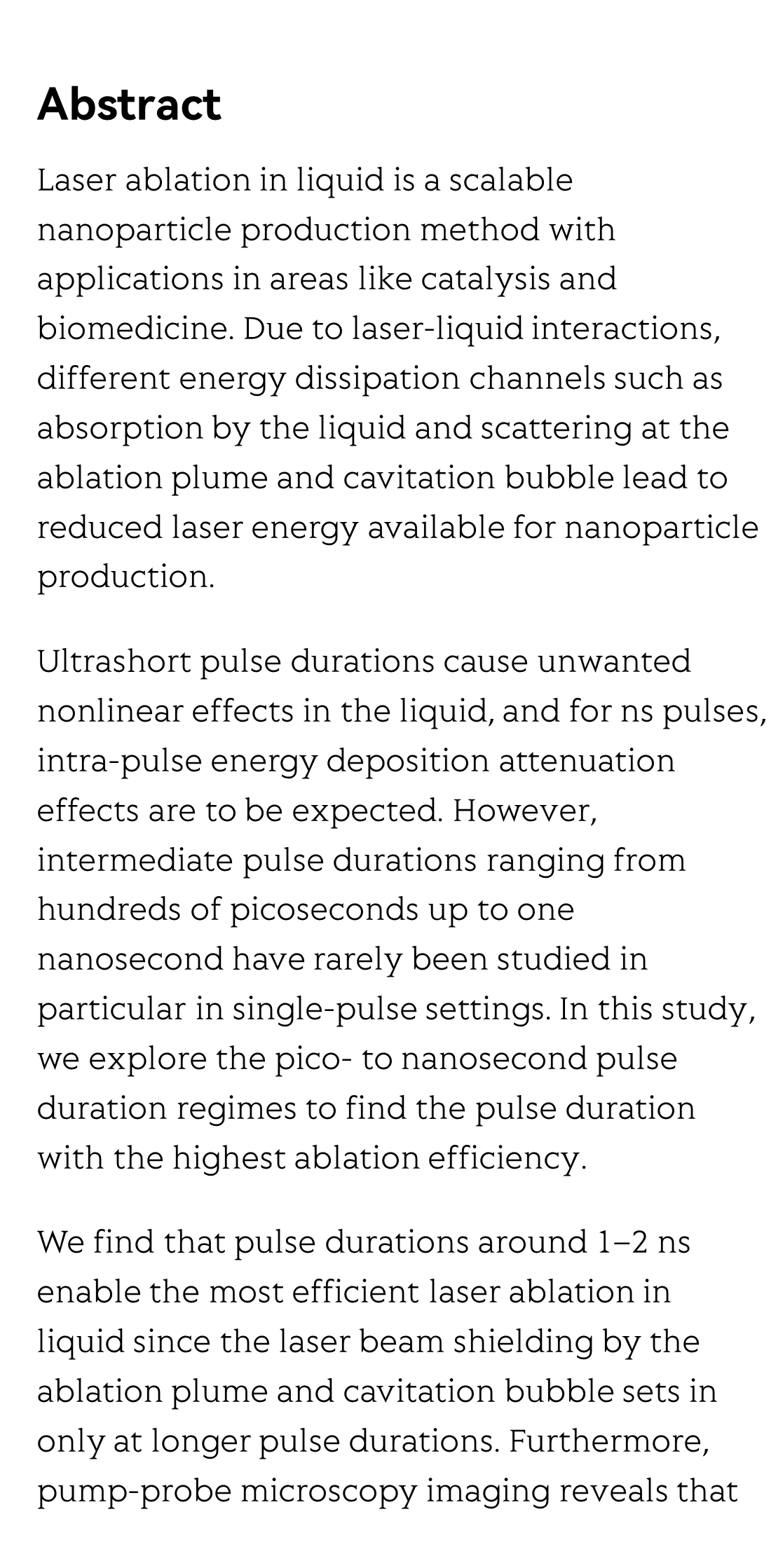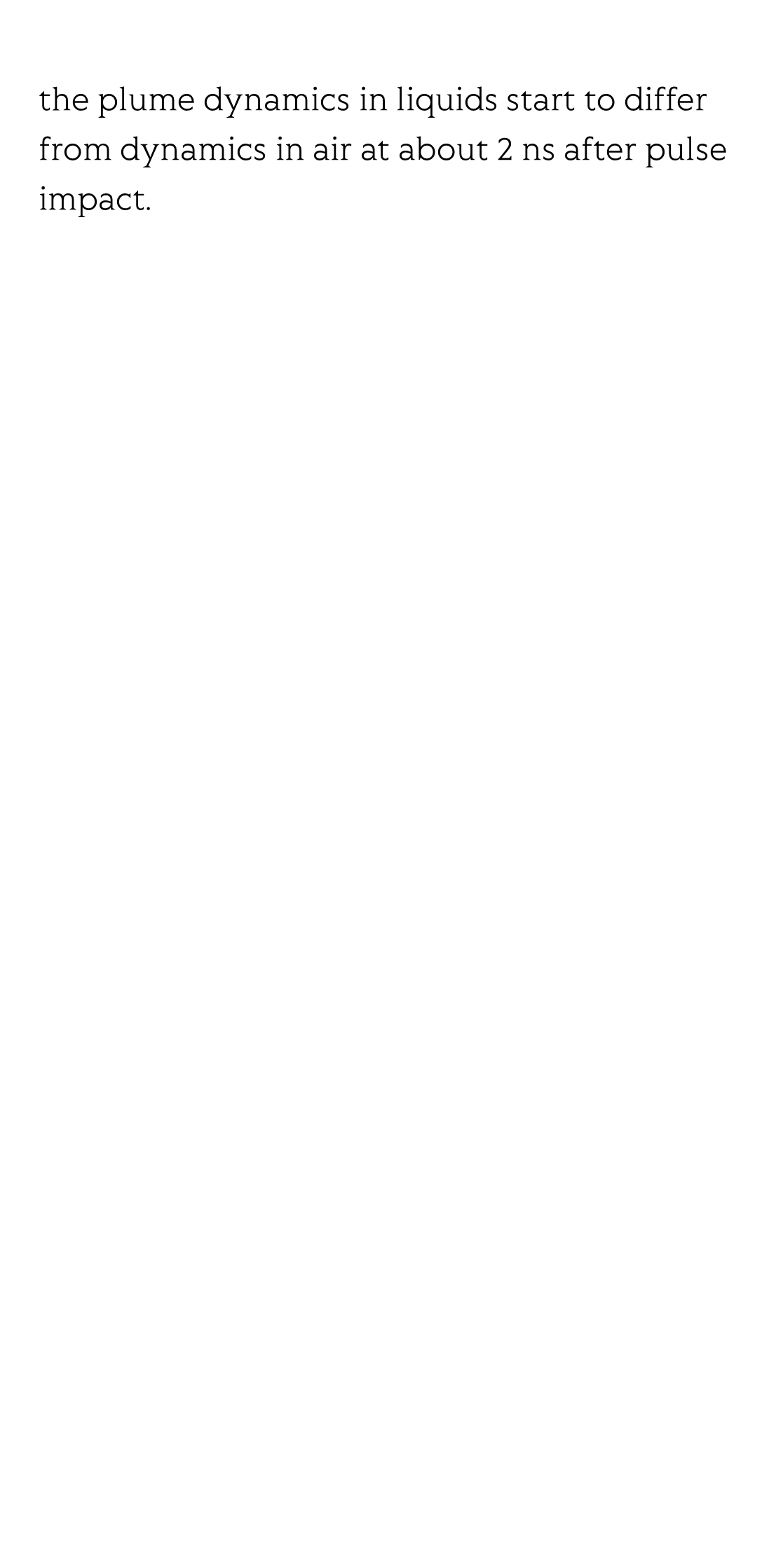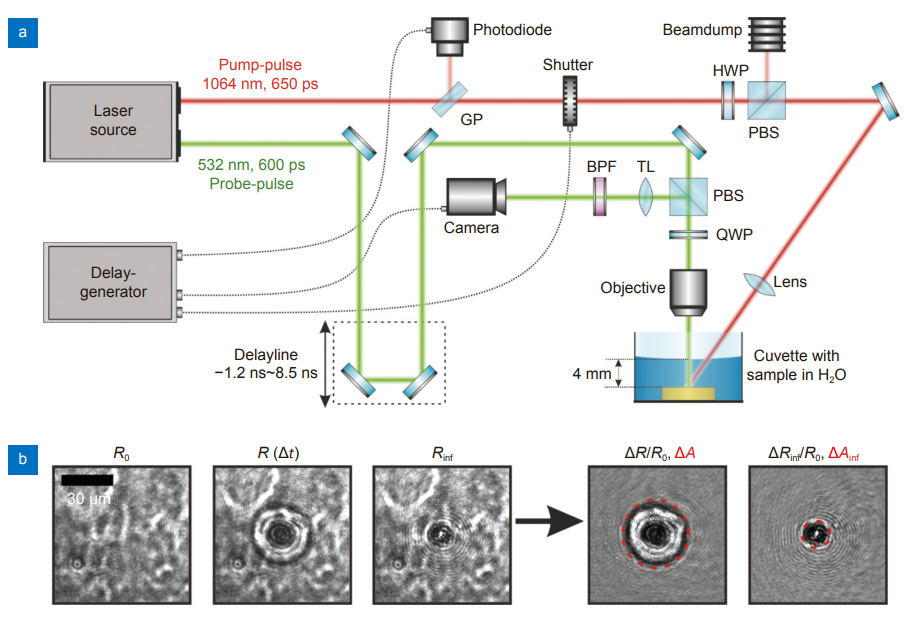(Peer-Reviewed) Time resolved studies reveal the origin of the unparalleled high efficiency of one nanosecond laser ablation in liquids
Sarah Dittrich ¹, Maximilian Spellauge ¹ ², Stephan Barcikowski ¹, Heinz P. Huber ², Bilal Gökce ¹ ³
¹ Technical Chemistry I and Center of Nanointegration Duisburg-Essen (CENIDE), University of Duisburg-Essen, Universitaetsstr. 7, 45141 Essen, Germany
² Department of Applied Sciences and Mechatronics, Munich University of Applied Sciences, Lothstr. 34, 80335 Munich, Germany
³ Materials Science and Additive Manufacturing, School of Mechanical Engineering and Safety Engineering, University of Wuppertal, Gaußstraße 20, 42119 Wuppertal, Germany
Opto-Electronic Advances
, 2022-06-22
Abstract
Laser ablation in liquid is a scalable nanoparticle production method with applications in areas like catalysis and biomedicine. Due to laser-liquid interactions, different energy dissipation channels such as absorption by the liquid and scattering at the ablation plume and cavitation bubble lead to reduced laser energy available for nanoparticle production.
Ultrashort pulse durations cause unwanted nonlinear effects in the liquid, and for ns pulses, intra-pulse energy deposition attenuation effects are to be expected. However, intermediate pulse durations ranging from hundreds of picoseconds up to one nanosecond have rarely been studied in particular in single-pulse settings. In this study, we explore the pico- to nanosecond pulse duration regimes to find the pulse duration with the highest ablation efficiency.
We find that pulse durations around 1–2 ns enable the most efficient laser ablation in liquid since the laser beam shielding by the ablation plume and cavitation bubble sets in only at longer pulse durations. Furthermore, pump-probe microscopy imaging reveals that the plume dynamics in liquids start to differ from plume dynamics in air at about 2 ns after pulse impact.
Flicker minimization in power-saving displays enabled by measurement of difference in flexoelectric coefficients and displacement-current in positive dielectric anisotropy liquid crystals
Junho Jung, HaYoung Jung, GyuRi Choi, HanByeol Park, Sun-Mi Park, Ki-Sun Kwon, Heui-Seok Jin, Dong-Jin Lee, Hoon Jeong, JeongKi Park, Byeong Koo Kim, Seung Hee Lee, MinSu Kim
Opto-Electronic Advances
2025-09-25
Dual-frequency angular-multiplexed fringe projection profilometry with deep learning: breaking hardware limits for ultra-high-speed 3D imaging
Wenwu Chen, Yifan Liu, Shijie Feng, Wei Yin, Jiaming Qian, Yixuan Li, Hang Zhang, Maciej Trusiak, Malgorzata Kujawinska, Qian Chen, Chao Zuo
Opto-Electronic Advances
2025-09-25







